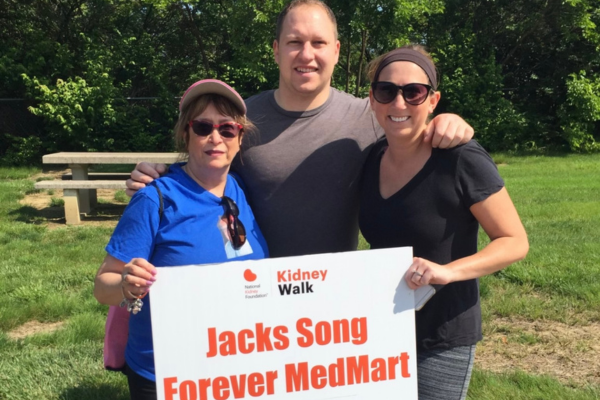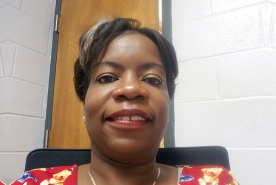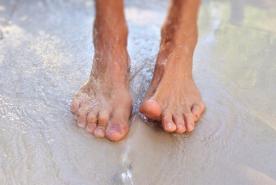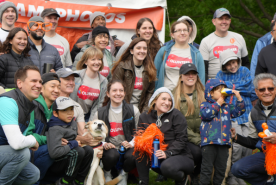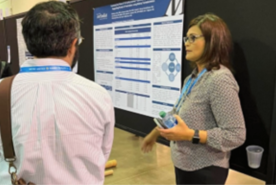January 12, 2024
Her grandmother was a dietitian, mother a nurse, stepfather a pharmacist.
Erica Cohen was raised in a household full of healthcare professionals.
That didn't stop her life from being touched by kidney disease. First, her grandfather's kidneys failed, and then her stepfather's soon after.
With this background, Erica followed in her family's healthcare footsteps. She became a registered nurse and joined a kidney-focused pharmaceutical company to help more people with kidney disease. Erica even volunteers for the National Kidney Foundation.
Now, she's sharing her story to inspire more people to get involved.
An early introduction to kidney disease
Erica first heard the word "dialysis" when she was a preteen. She overheard her mother, a dialysis nurse, and grandmother discussing her grandfather's condition.
"I knew my mother was a nurse but not that she worked in a dialysis center until my grandfather got sick. He caught a virus that attacked his kidneys. That, combined with chronic high blood pressure led to his kidney failure." Erica said, "I was young and didn't understand the situation. I do remember how they had to arrange transportation three times a week for his dialysis sessions. I remember how frail he was."
Sadly, Erica's grandfather passed away a few years later when she was fifteen.
"My grandmother went to get the newspaper for him. When she came back, she found him unresponsive. His death was likely from an arrhythmia due to high potassium. Potassium can be very dangerous to CKD patients if not controlled." Erica said, "My grandmother and mother did their best to help him follow a renal diet. But he loved foods that happened to be high in potassium–ketchup, spaghetti, and tomatoes. It was hard for him to limit these things, and we didn't have the treatments we have now."
Are you at risk of kidney disease? Take this one-minute quiz to find out.
A second brush with kidney failure
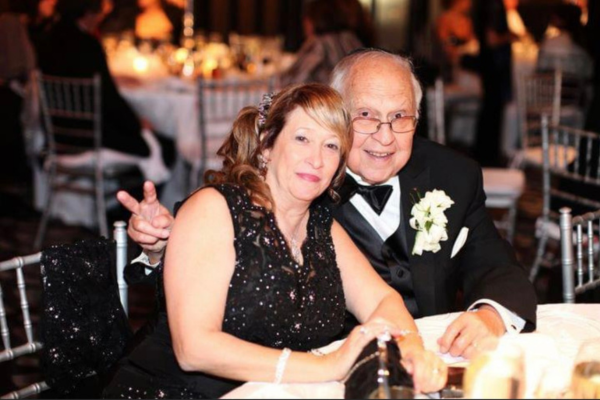
When Erica started college to become a registered nurse in 2000, the cycle began again—this time with Jack, her beloved stepfather.
"Jack and Mom were driving when he started falling asleep at the wheel. They went to the doctor that week and learned he had stage four kidney disease," said Erica. "My stepfather was an athlete in his youth. He ran and played basketball which caused him to develop arthritis. The pain led to a lot of pain reliever (NSAIDs) use, which can be very damaging to the kidneys. That and high blood pressure caused his kidney function to decline."
Within the year, Jack's kidneys failed, and he started in-center hemodialysis.
"It was hard to watch. He lost a lot of weight. It was like he was withering away. Each time I came home for college breaks it was a shock to see how much he changed. But he never gave up."
Over the next few years, Jack and Erica's mother continued traveling the world; Jack played piano and ran his business. Then, he got the call everyone on the transplant waitlist dreams of–a kidney was available.
"He received a transplant and sprung back to life. He had a wonderful five years with that kidney." Erica said, "While they were on a vacation in Costa Rica, he woke up completely swollen. There had been times his kidney tried to reject over those five years but they always managed it. This time they couldn't. It was the beginning of the end for his transplant."
Instead of going back to in-center hemodialysis, Jack opted for peritoneal dialysis.
"It gave him flexibility that hemodialysis didn't. He was able to do treatment in the comfort of his bed while he slept," said Erica. "As a dialysis nurse, my mom was meticulous with cleaning the equipment. He still developed an infection in his stomach lining called peritonitis. This was life-threatening and meant he couldn't continue peritoneal dialysis."
Jack went back to in-center, and his health continued to decline. By 2014, his body was full of the toxins his kidneys couldn't get rid. He was easily confused and fell often.
"I was driving on the same road he fell asleep on when I got the news he passed away. I had to pull over and have someone else drive. It was like a gut punch." Erica said, "He had a normal day before that. He went to dialysis. He asked my mom what they were going to have for dinner that night."
Losing Jack was heartbreaking. He'd been a steady guiding force in Erica's life since she was nine. So, Erica decided to transform her grief into action to honor Jack and her grandfather.
No matter where you are in your kidney disease journey, NKF is here to help. Empower yourself with our kidney health resources.
Transforming grief into action
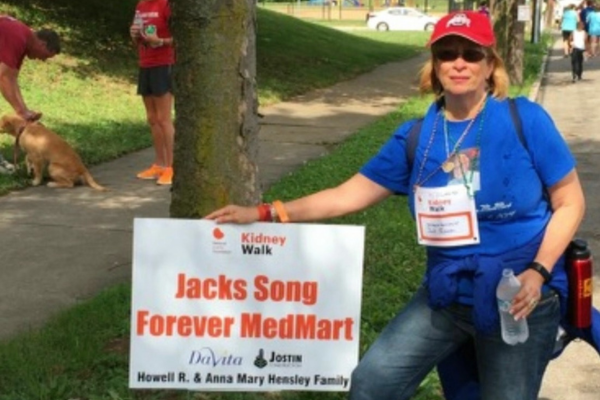
Erica and her family started attending Kidney Walk. Their team, Jack Song Forever, celebrates Jack while raising kidney disease awareness.
"We got involved to help people less fortunate than my family. We had the resources–insurance, finances, and education to get him a kidney transplant." Erica said, "Not everyone has a supportive family dynamic. That's where NKF steps in. They provide free education, resources, and support to everyone."
That's why the Cohens continue to walk and share their stories. They dream of a world where everyone with kidney disease has the best chance of living a long, healthy life.
"Those with kidney disease aren't patients, they're people. They're people who want to live their lives to the fullest. These events give you the chance to surround yourself with the love of others going through similar situations," said Erica. "Kidney disease isn't a death sentence. You can live a very full life even if you don't have family support and it is there for you. NKF can help."
Their involvement goes beyond personal grief. It's a commitment to supporting others facing kidney disease challenges. It's about honoring the legacy of two kind men who were always there for the family.
"We miss my grandfather. We miss Jack." Erica said, "But they would be so proud of us. We're carrying on their legacies."
Want to join Erica in making a difference? See how you can get involved with NKF.
